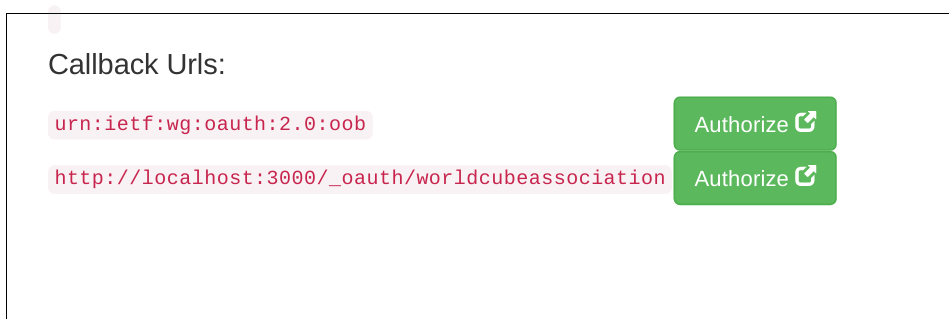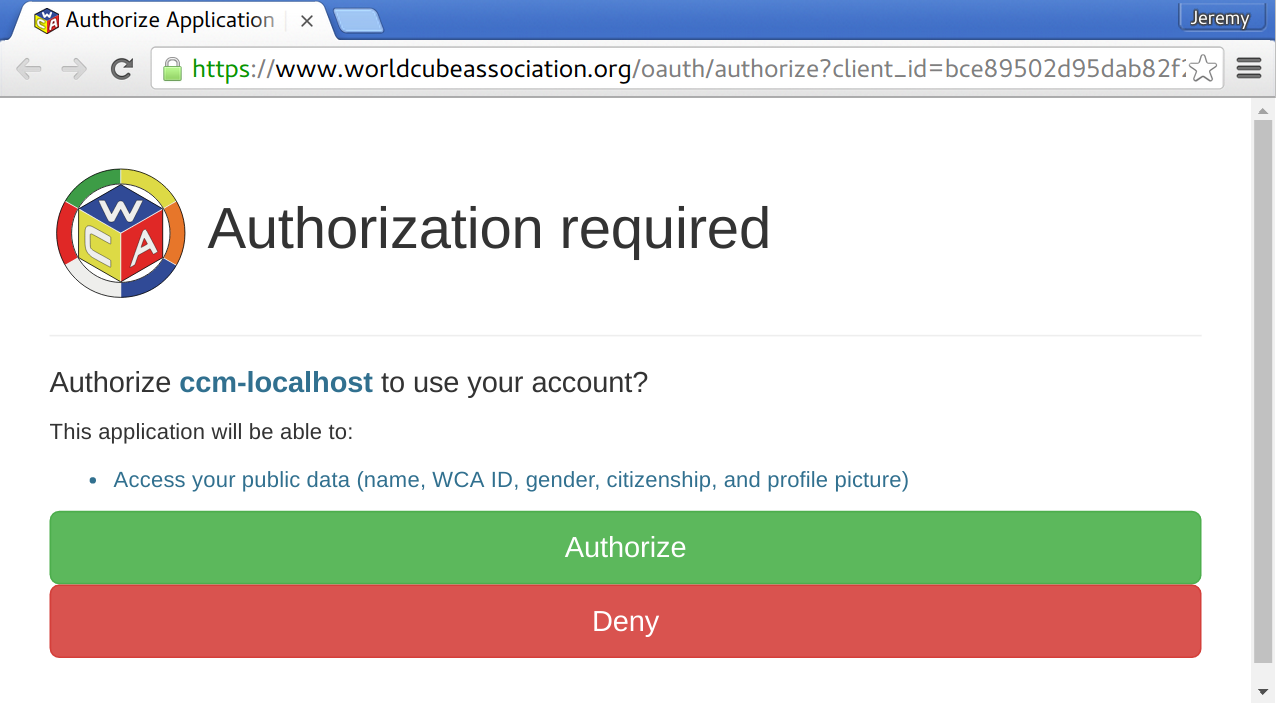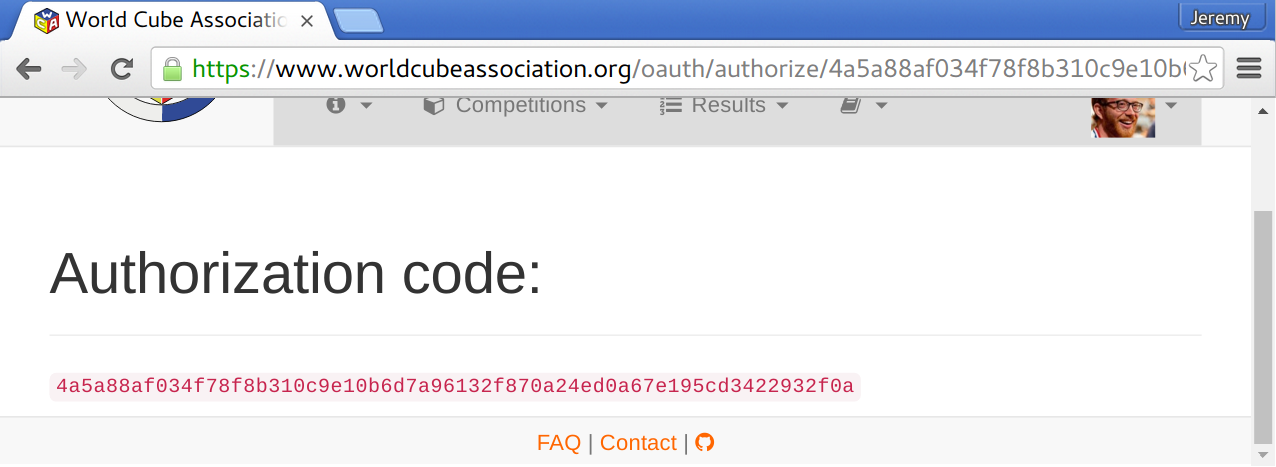If you want to read/query WCA website data, see WCA Data Overview. The v0 API is only for experienced developers looking to use the website for OAuth, or looking to write data to the website via WCIF. WST will not provide support for except for Major Championship software.
Disclaimers and Context
If you are looking to write data, we do have a v0 API you can interact with. It is not officially supported, and as such there guarantee of consistency or availability. It provides the following capabilities:
- read/write data to the website
- allow uses to OAuth with their WCA accounts
A v1 API is on our pipeline, but should only be expected by Q2 of 2024 at the earliest.
Writing to the API
For now, if you want to figure out what our API does, we recommend looking at the source code (see here, search for “namespace :api” at the bottom) or the emails content.
If you want to exchange data with the WCA website, you should understand WCA Competition Interchange Format (WCIF)
Here we have a collection of replies to different emails about the API
- List of available endpoints here.
- The French association has some integration you can use as an example, like upcoming competition in France.
- WCA Data Protection Committee (WDPC) might be interested in what you are building and we are currently trying to figure out the best way to handle third-party usage and our regulations, so, please, email them.
(A little) More details on the endpoints
- /competitions lists competitions, paginated 25 per page, you can use page query parameter to get more, prev/next links should also be in the response headers. Additionally you can use the q query parameter to search competitions by a phrase.
- /competitions/:id/competitors lists competitors for a competition given it has results uploaded, those are the people who actually competed
- /competitions/:id/results lists competition results, each one corresponds to competitor times for some event&round
- /search/regulations allows for searching regulations by a phrase
- /search/users lets you search users (WCA accounts), but when you use the persons_table=true query parameter it searches profiles with official results. It returns results paginated, already sorted by name.
- Competitions are sorted by start date DESC (and currently there is no parameter to change that behavior). You can however specify a time range you’re interested in, use start=yyyy-mm-dd parameter to get competitions after the given date and end=yyyy-mm-dd to get competitions before the given date (combine both to specify an exact range). Additionally there is a country_iso2 parameter to specify competition’s country, in case it’s of any use for you.
- Example of getting upcoming competitions referring to a specific date.
Concerning the people list returning only 25 entries, see the first of the points above, the same applies for /persons.
Using the API for OAuth
This “documentation” assumes a lot of knowledge. If you have questions about how WCA OAuth works, please contact the WST directly at software@worldcubeassociation.org. We’d love help turning this wiki page into a useful document on how to set up WCA OAuth on third party websites. In the mean time, we have the documentation below. You can also see some example code at in thewca/wca-oauth repository.
Known open source projects using WCA OAuth:
- letscube - GitHub: coder13/letscube
- birdflu.lar5.com - GitHub: larspetrus/Birdflu
- cubingza.org - GitHub: AlphaSheep/CubingZA-Website
- live.cubing.net - GitHub: cubing/ccm
- wc2017 - GitHub: viroulep/wc2017
- speedcubingfrance.org - GitHub: speedcubingfrance/speedcubingfrance.org
- Scrambles Matcher - GitHub: viroulep/scrambles-matcher
- WCA Live - GitHub: thewca/wca-live
- Delegate Dashboard - GitHub: coder13/delegateDashboard
- Groupifier - GitHub: jonatanklosko/groupifier
- Badgifier
Staging OAuth Application
When populating the staging database (see code here), we create a “Example Application for staging”. You can see the details here: https://staging.worldcubeassociation.org/oauth/applications/1. This application is configured in a very special, insecure way: it allows any redirect uri to be specified when you’re using it in the OAuth flow. This means anyone can use it for testing/demo purposes, where you don’t necessarily want to mess with state on the real production server.
NOTE: If you choose to use a scope other than empty string, be sure to include “public” as one of your scopes.
How to use response_type “code” (preferred method)
NOTE: This is just a writeup of the very simple “can authenticate with grant_type authorization” test in spec/requests/oauth/oauth_spec.rb. Included throughout are links to the relevant parts of the test.
1) First, create an OAuth application (see test code) here.
2) Then, click the Authorize button (see test code) for that new application:

3) That should should take you to a url like https://www.worldcubeassociation.org/oauth/authorize?client_id=...&redirect_uri=...&response_type=code&scope=..., where you can approve the application (see test code):

4) After you click the green button, you’ll be redirected to your redirect url. If you set your redirect url to urn:ietf:wg:oauth:2.0:oob, you’ll be redirected back to the WCA website, and it will be very easy to see your authorization code (see test code):

5) Next, you must convert the authorization code you got in step 4 into an access token (see test code)
~ @kaladin> curl -X POST -F grant_type=authorization_code -F client_id=<APPLICATION_ID> -F client_secret=<SECRET> -F code=<CODE> -F redirect_uri=urn:ietf:wg:oauth:2.0:oob https://www.worldcubeassociation.org/oauth/token
{"access_token":"<ACCESS_TOKEN>","token_type":"bearer","expires_in":7200,"scope":"public","created_at":1458343262}~ @kaladin>
This is actually a POST request.
API URL: https://www.worldcubeassociation.org/oauth/token
You need to set the following parameters correctly on the POST body:
| parameter | type | description |
|---|---|---|
| grant_type | string | The token type of the request, in this case is authorization_code |
| code | string | The oauth code you just obtained |
| client_id | string | The client_id in your oauth app |
| client_secret | string | The client_secret in your oauth app |
| redirect_uri | string | redirect uri |
NOTE: Surprising as it may seem, you do need to include redirect_uri!
If everything works, a json will be returned

6) Lastly, try hitting the /me route with your new access token! (see test code)
~ @kaladin> curl -H "Authorization: Bearer dfd52608e547abb7d44b209a01ec6f3983494dae25be333b05646361a79632b9" https://www.worldcubeassociation.org/api/v0/me
{"me":{"class":"user","url":"/results/p.php?i=2005FLEI01","id":8,"wca_id":"2005FLEI01","name":"Jeremy Fleischman","gender":"m","country_iso2":"US","created_at":"2010-12-29T22:25:01.000Z","updated_at":"2016-03-17T13:10:02.000Z","avatar":{"url":"https://d1qsrrpnlo9sni.cloudfront.net/uploads/user/avatar/2005FLEI01/1441167621.jpg","thumb_url":"https://d1qsrrpnlo9sni.cloudfront.net/uploads/user/avatar/2005FLEI01/1441167621_thumb.jpg","is_default":false}}}~
How to use response_type “token” (implicit authorization)
This is much simpler than the response_type “code” flow described above, but should only be used in pure client side javascript applications, where there is no place to hide your application’s secret. Until we write this up in more detail, you will have to deduce how it works from our test.
How to use response_type “password” (implicit authorization)
This is easier than both methods described above, but please don’t use it in scripts without human intervention. You should never store your password in a file! You should instead store an API token (in a secure manner, don’t just commit it to GitHub). Dealing with secrets is hard =(
A python3 implementation example can be found in the thewca/wca-oauth repository.
1) First, get your access token by using your user email address and your WCA user password.
curl -X POST -F grant_type=password -F username=8@worldcubeassociation.org" -F password="wca" https://staging.worldcubeassociation.org/oauth/token
{"access_token": "336c5803943502d2c960cb3dc7a7fafd87fd1ede2af068239d2c1b040cee0040","token_type": "Bearer","expires_in": 7200,"refresh_token": "44a7166ec9240ab1cda001f017d510870d9755aa059cb5cfa362c6a0d07deaa9","scope": "public","created_at": 1542981494}
NOTE: you have to add your scopes in this first request to get the correct access token. (e.g. -D scope="public competitions")
2) And that’s about all! Try hitting the /me route with your new access token!
curl H "Authorization: Bearer 336c5803943502d2c960cb3dc7a7fafd87fd1ede2af068239d2c1b040cee0040" https://staging.worldcubeassociation.org/api/v0/me
{"me": {"class": "user","url": "https://staging.worldcubeassociation.org/persons/2005FLEI01","id": 8,"wca_id": "2005FLEI01","name": "Jeremy Fleischman","gender": "m","country_iso2": "US","delegate_status": null,"created_at": "2010-12-29T22:25:01.000Z","updated_at": "2018-11-22T15:41:28.000Z","teams": [{"friendly_id": "wst","leader": true}],"avatar": {"url": "https://staging.worldcubeassociation.org/uploads/user/avatar/2005FLEI01/1441167621.jpg","thumb_url": "https://staging.worldcubeassociation.org/uploads/user/avatar/2005FLEI01/1441167621_thumb.jpg","is_default": false}}}
If this works, other routes should work, too, as long as you are authorized to do them and you choose the appropriate scopes.